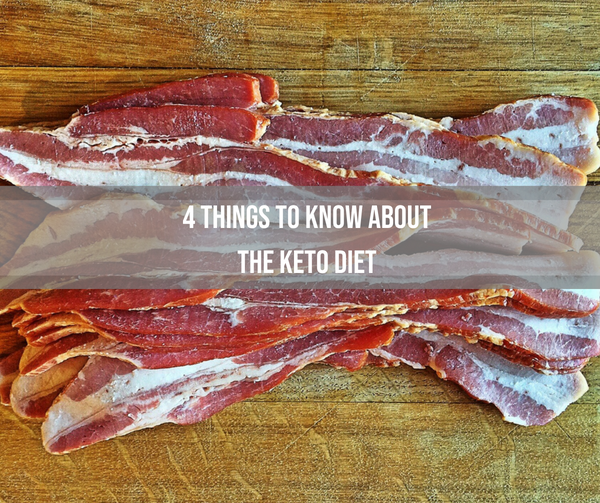The Keto Diet | Remedy Urgent Care

I have several friends that are “doing” the Keto Diet thing. Honestly, I had never heard of and had no clue what it entailed, but it sounds scientific enough and Gwyneth and Tim McGraw are doing it, so it must be good, right?
It seems strange at first. (You’re suppose to pass on the strawberries and eat more butter?) I do love the idea of not feeling the highs and lows of carb-induced glucose spikes. I love pizza, but I don’t love the way I feel after I eat pizza.
Many people have achieved significant weight loss on a keto diet, and it’s not without its merits. Having said all that, I think keto is a bit overblown, and there are some misconceptions that need to be dispelled. Fortunately, our friends {and experts} at Remedy Urgent Care are giving us the lowdown on this new diet fad!
Here’s a few:
- “Keto has health benefits!” While it is true that the ketogenic diet has been beneficial for patients with epilepsy, health benefits for the population at large have not been proven. In fact, there are several undesirable side effects. For starters, there’s “keto flu” – the lightheaded and dizzy sensation that people feel the first week or so of ketosis. This passes, but there is also evidence that chronic ketosis can lead to kidney stones, high cholesterol, constipation, and bone fractures. The idea of a “balanced diet” isn’t without merit, and anyone who’s tried keto will tell you it’s not exactly “balanced.”
- “Keto causes more rapid weight loss.” This has simply not been proven out by studies, yet. I have personally done keto, and lost several pounds the first week. Many people have this experience, and it feels great. The problem is that it has nothing to do with loss of fat, but rather it is a loss of water. Keto causes a depletion of glucose stored in the liver called glycogen. Glycogen binds water, so depleting that glycogen means losing lots of water. More studies are needed to see if the loss is maintained over longer periods of time.
- “Keto causes more dramatic weight loss.” Low carb diets do not produce reliably better results over the long haul. The harder a diet is to adhere to, the less well it performs. Think about it. You may think to yourself, “I could eat bacon and avocados and butter forever.” But the truth is that limiting yourself to 100 grams of carbohydrates per day is not only extremely difficult; it’s near impossible to do for months on end. There is a reason why we don’t know of any culture in human history that has existed in chronic ketosis.
- “Keto can reverse diabetes.” This has been challenged as well. In fact, some studies indicate that the opposite may happen. After long periods of a high fat and low carb diet, the body may become even more intolerant of sugar. A true diabetes-reversing diet would be one that would allow the person to eat carbs again without spiking their blood sugar. And keto has never been proven to do this. However, in defense of keto, it has definitely been shown to lower Hemoglobin A1c levels and reduce the need for medications in diabetics while they are on the diet. So there may be a case for it in folks with type II diabetes. You should talk with your doctor about it if this is your primary reason for trying out the keto diet.
There is no question that the ketogenic diet has been helpful in people with epilepsy. It’s shown benefits in deep-sea diving Navy Seals. There is some very new research that indicates it could be helpful in some cases of cancer.
It may help you get off your diabetes meds, if you can stick with it. But by and large, for the general population, keto doesn’t offer dramatics benefits over balanced, calorie-controlled diets.
Weight loss is ultimately about consuming fewer calories than you burn. And this can happen with a wide range of diets. None of which have been proven to be more effective than the others. We continue to hold out hope that some effective diet exists without calorie restriction or the darn hunger pains, but not yet. And maybe never.









